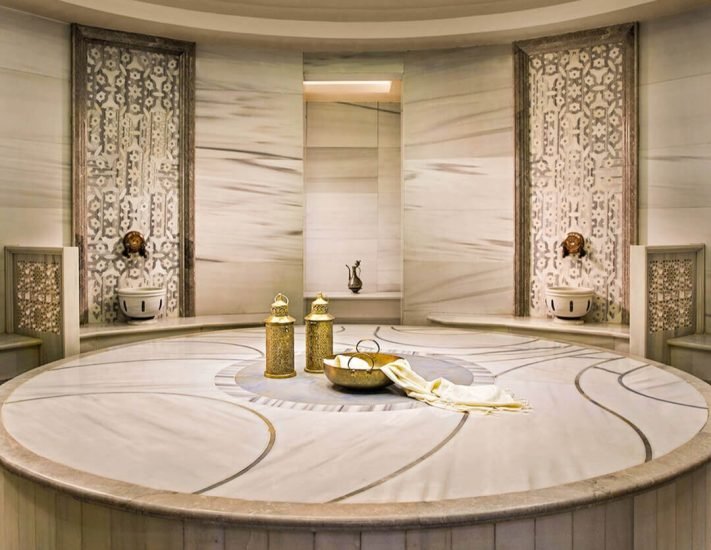
That is a question I have frequently heard when changing neighborhoods for work or traveling outside the country.
My answer is always the same, “They are just like us.”
When I was working as a global trainer, I had the opportunity to travel with my colleagues to Istanbul to teach a program. We arrived on a Saturday afternoon to prepare as a team on Sunday for our Monday program.
Since we were exhausted from traveling, my colleague Meredith and I visited the over 4,500 square foot spa at The Grand Tarabya Hotel, where we were fortunate to stay. It was empty late on this Saturday afternoon, though they had a few employees still working.
They invited us to try the hammam, a Turkish bath that historically goes back thousands of years. My colleague opted for the basic massage, though I decided to trust my instincts and the hostess at this five-star hotel and try the hammam.
I was escorted to the locker room to undress and handed a large, soft Turkish towel and bikini underwear made of paper the size of a tissue. I was then taken to a small, warm room entirely made of marble to wait. After a few minutes, I was brought into the larger, warmer marble room, with beautiful intricate designs on the walls and floor and a large round white table in the center.
The woman who would do the massage handed me a beautiful copper bowl and filled it with warm water from the spigot that appeared out of the marble wall behind me. She then poured the warm water over my head and shoulders as she softly repeated, “Like baby.” She demonstrated to me how to pour the water over my whole body as I sat there, and she left me alone in the room to continue quietly pouring the warm water over my entire naked body.
In about 10 minutes, she returned, and she, too, was wearing a towel. My trust was in overdrive since I honestly had no idea what I had agreed to by experiencing the hammam.
She took off her towel and was wearing a bathing suit, and then carefully walked me across the wet, warm marble and onto the large round marble table that seemed to be heated in the middle of the room. She had me lie down on my back. Again and again, as she gently poured warm water over me, she would occasionally whisper, “Like baby, like baby.”
I laid on that table using every attitude I have learned to cultivate with my mindfulness practice, and it finally dawned on me that no one had bathed me since I had been a baby!
I let that soak into my mind and heart as she slowly began to wash my body…each finger…with warm soap as she gently cradled my arm.
And then she had me turn onto my stomach and did the same to my back, scrubbing gently yet firmly. Since my eyes were closed, I did not know how she could pour what felt like warm powder with a heavenly scent that turned into massage oil.
And then, once again, she rinsed me off by pouring the warm water over my body, “Like baby.”
This was truly one of the most rejuvenating, relaxing, and memorable experiences of my life. I was so grateful that I could use my mindfulness practice to completely trust myself to be vulnerable and try this previously unknown to me type of massage.
I had purposefully let go of judgment, focusing instead on using all of my senses so that I would remember this experience. I was filled with gratitude for this person who cared for me with such patience and kindness.
I’m grateful that the few words she knew in English included “Like baby” since that profoundly added to my experience.
I could be fully present and connect with what it felt like to trust someone else to care for and bathe me.
TRUST
Trust is one of the nine attitudes highlighted in my book that is used to cultivate a mindfulness practice.
The attitude of Trust has to do with knowing and listening to our own wisdom based on what we have learned and experienced.
It is also about using our voice and having the trust in ourselves to share our unique ideas with the world.
PHOTO CREDIT: The Grand Tarabya Hotel
Provide a life-changing program for your employees and create a healthier more collaborative and engaged workplace.